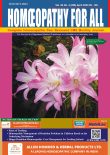WORM INFESTATION
Keywords:
protein energy malnutrition, whipworm, anaemia.Abstract
Soil-transmitted helminths (STH) are distributed worldwide mostly in tropical and subtropical regions. It consists of mainly roundworm (Ascaris lumbricoides), whipworm (Trichuris trichiura), & hookworm (Necator americanus and Ancylostoma duodenale). Ascaris and Trichuris affect mainly children whereas hookworm affects both children and young adults. It leads to iron deficiency anemia, protein energy malnutrition, and stunted growth. Severe infections lead to intestinal obstructions and gangrene.Soil-transmitted helminth infections are among the most common infections worldwide and affect the poorest and most deprived communities. They are transmitted by eggs present in human faeces which in turn contaminate soil in areas where sanitation is poor.The main species that infect people are the roundworm (Ascaris lumbricoides ), the whipworm (Trichuris trichiura) and the hookworms (Necator americanus and Ancylostoma duodenale. Soil-transmitted helminth infections are widely distributed inall WHO Regions. Intestinal worms produce a wide range of symptoms including intestinal manifestations (diarrhoea, abdominal pain), general malaise and weakness. Hookworms cause chronic intestinal blood loss that result in anaemia.




